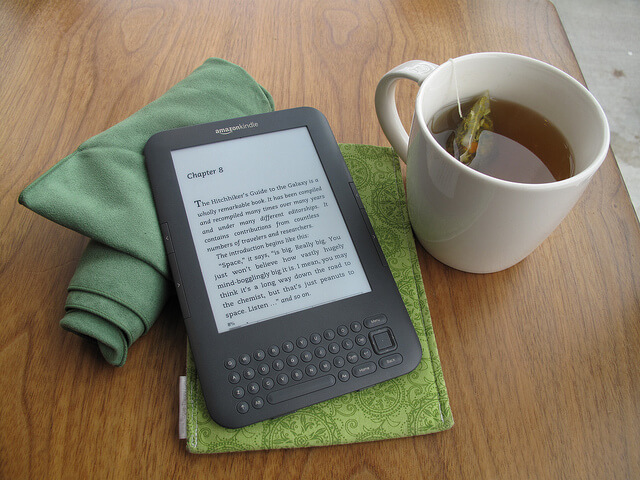August is just a couple of weeks away and this is the date that Amazon has set to render their Kindle bookstore unavailable on millions of active Kindle e-readers that are being used on a daily basis. Starting in the first week of August, a bunch of older Kindles will lose the ability to buy books right on the device and won’t even be able to add them to a wish list to buy on another device at a later date. If you have an active Kindle Unlimited subscription, you won’t be able to browse or read new titles directly on the e-readers being discontinued. This is the first time that Amazon has done something like this and is a very bold move.
What Kindles will lose bookstore access in August? The Kindle (2nd Gen) International, Kindle DX International, Kindle Keyboard, Kindle (4th Gen), and Kindle (5th Gen) are the models that are on the chopping block. Many of these models do not have a touchscreen and rely on physical buttons. Will Amazon discontinue other models in the future? I have a funny feeling that they will announce something next summer.
Amazon has not stated otherwise, but I believe this whole issue has to do TLS certificates. The Amazon Bookstore sometimes updates their security and the minimum the store accepts is TLS 1.2, but it is ideal that all devices use TLS 1.3. Amazon could issue a firmware update to solve this issue, and upgrade TLS for older Kindle e-readers, but why bother? I would bet there is a small population of users that read on ten year old Kindles with poor PPI and E INK Pearl screens. The real reason why Amazon won’t issue a firmware update? It goes against a new Kindle upgrade policy.
Amazon stated late last year they will only issue security updates for four years, when the Kindle was last available for purchase on the Amazon website. This means that the current generation Kindle Basic 2019, previous generation Kindle Paperwhite and Kindle Oasis 3 will only be supported until 2024-2026. The latest generation Kindle Paperwhite 11th Generation and the Kindle Paperwhite Signature Edition will be supported until the end of the decade. Basically, Amazon implemented this policy as a way to get people to upgrade every few generations, and continue their investment in the Amazon ecosystem. Older Kindles do not do Amazon any favors if people refuse to upgrade, this new policy change is forcing people to upgrade.
Good e-Reade was the first media outlet to report on this situation and since then, thousands of news websites and blogs have picked up on the story and I think it caught Amazon flatfooted. A couple of weeks when we first broke the story, the company posted a help file that goes into detail what models will be affected and what they recommended users to do. This is similar to when we broke the story of Kindles losing access to 3G networks, which meant anyone who spent the extra money for 3G access and not have to rely on WIFI, had their Kindles lose access to Cellular networks in the US and around the world. Amazon likely didn’t even know this was happening until everyone picked up on our story and they had to announce plans to deal with it. Both times, when we broke these stories, Amazons response was to get people to upgrade to the latest gen models and offer a coupon code and $50 in ebook credit.
If you use an older Kindle e-reader, be prepared to lose access to the store on August 17th. Your existing books you bought will not disappear, although you can’t buy new ones. The only way you can still use this reader is to access your local Amazon website on your phone or computer and buy books and they will be synced to your Kindle. It requires jumping through hoops, which sucks. The big draw of buying a Kindle in the first place, is to buy books right on the e-reader and read them within a few seconds, this is why the brand as become the most popular in the world. If you have an active KU subscription you can browse for titles in the same way you would purchase books on your computer and they will be delivered to your Kindle.
I think Amazon is slowly losing their charm. Audible, Amazon Shopping and Kindle for Android and iOS all lost the ability to buy audiobooks and ebooks. People who use iPhones and iPads and flagship Android phones, all represent a significant amount of people who were active customers and suddenly one day, the ability to buy books was gone. Now, their Kindle e-readers are losing store access. Where does this stop?
Michael Kozlowski is the editor-in-chief at Good e-Reader and has written about audiobooks and e-readers for the past fifteen years. Newspapers and websites such as the CBC, CNET, Engadget, Huffington Post and the New York Times have picked up his articles. He Lives in Vancouver, British Columbia, Canada.

